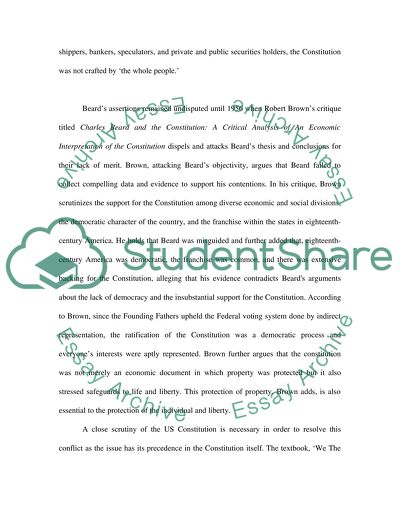Cite this document
(“The Constitution Thesis Example | Topics and Well Written Essays - 1750 words”, n.d.)
Retrieved from https://studentshare.org/politics/1525628-the-constitution
Retrieved from https://studentshare.org/politics/1525628-the-constitution
(The Constitution Thesis Example | Topics and Well Written Essays - 1750 Words)
https://studentshare.org/politics/1525628-the-constitution.
https://studentshare.org/politics/1525628-the-constitution.
“The Constitution Thesis Example | Topics and Well Written Essays - 1750 Words”, n.d. https://studentshare.org/politics/1525628-the-constitution.


